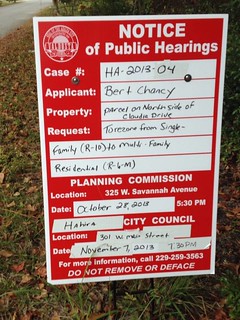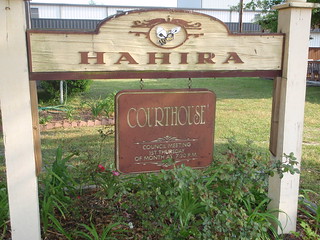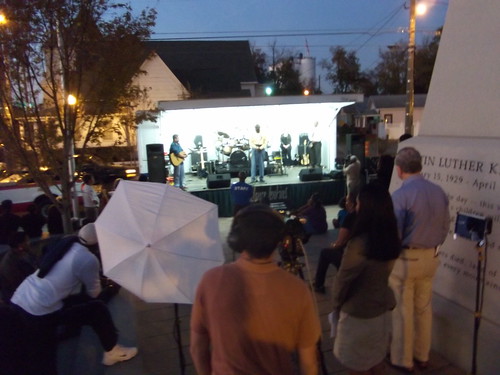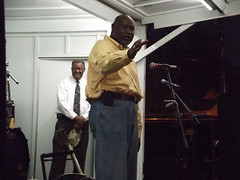In her response to my post about Commissioners panic about trash at undisclosed location, Barbara Stratton seems unfamiliar (like most people) with economic externalities. Here’s a definition:
A negative externality occurs when an individual or firm making a
 decision does not have to pay the full cost of the decision. If a good has a negative externality, then the cost to society is greater than the cost consumer is paying for it. Since consumers make a decision based on where their marginal cost equals their marginal benefit, and since they don’t take into account the cost of the negative externality, negative externalities result in market inefficiencies unless proper action is taken.
decision does not have to pay the full cost of the decision. If a good has a negative externality, then the cost to society is greater than the cost consumer is paying for it. Since consumers make a decision based on where their marginal cost equals their marginal benefit, and since they don’t take into account the cost of the negative externality, negative externalities result in market inefficiencies unless proper action is taken.
When a negative externality exists in an unregulated market, producers don’t take responsibility for external costs that exist—these are passed on to society.
Which is socializing the losses.
A famous ongoing case of this is
BP making record corporate profits while dumping huge amounts of oil into the Gulf of Mexico, continuing to destroy shrimping, wetlands, wildlife, and local people’s health.
And that’s what the County Commission is doing: privatizing the profits of trash pickup and socializing the losses onto landowners (who have to pay for fences and gates), onto the general public (who have to pay for law enforcement to catch dumpers), and onto those who can’t afford to pay for private dump fees (who will get stuck with fines instead). That is indeed, as Barbara says, “redistribution of wealth”: redistribution from the rest of us to the private waste pickup companies.
The Commission is ducking its responsibility to find an equitable solution that everyone can afford. Funny how they can deal with special tax lighting districts for subdivisions but they claim they can’t come up with a way to publicly fund waste collection. Could it be because all the voting Commissioners are town-dwellers who don’t understand that rural people don’t have exactly the same needs or resources as city people?
Barbara advocates,
Continue reading →
 Some people are rightly concerned about whether Hahira’s sewer system can handle it.
Apparently Hahira Mayor and Council have already discussed these three related cases,
and they come up for two Planning Commission meetings and a Hahira vote
in the next few weeks, plus the annexation goes past the Lowndes County Commission.
Oh, and Valdosta is indirectly involved.
Some people are rightly concerned about whether Hahira’s sewer system can handle it.
Apparently Hahira Mayor and Council have already discussed these three related cases,
and they come up for two Planning Commission meetings and a Hahira vote
in the next few weeks, plus the annexation goes past the Lowndes County Commission.
Oh, and Valdosta is indirectly involved.









